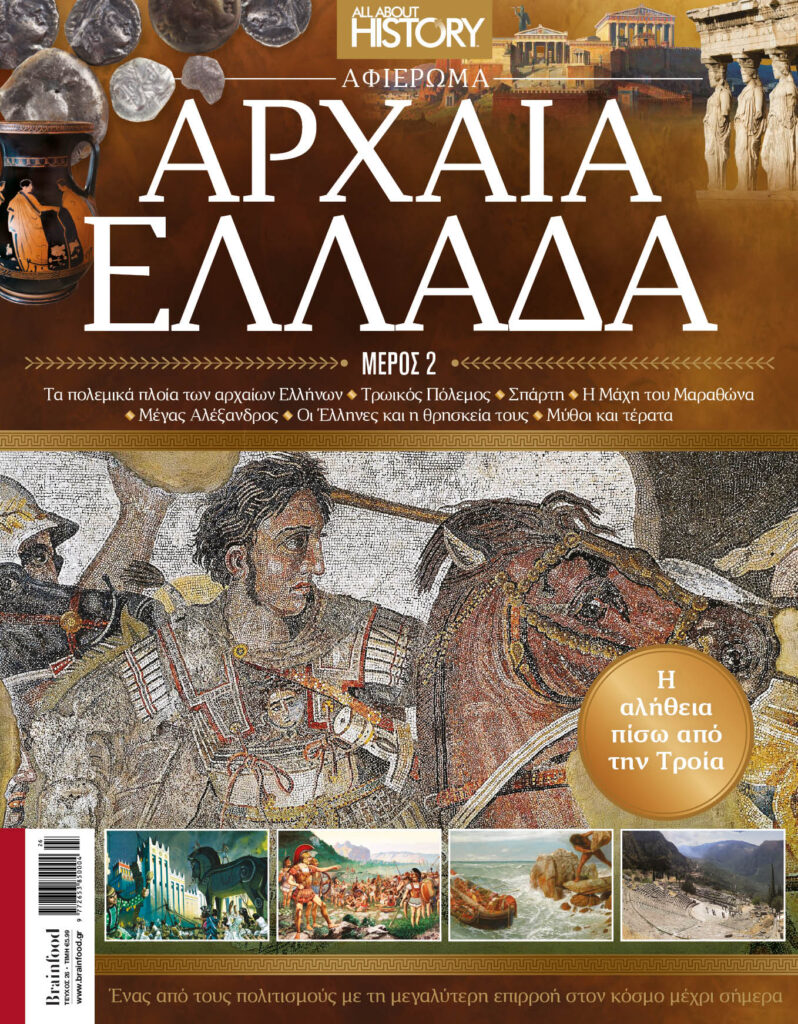Introductory note – ALL ABOUT HISTORY #26 February 26, 2021 – Posted in: Magazine – Tags: magazine
of Chrysostomos Bobaridis, Historian - Department of Ancient History, University of Siena
"War father of all". This puzzling as to the interpretation of the quote of the dark Heraklitou, one of the most important pre-Socratic philosophers, summarizes the central thematic axis of the second special issue on ancient Greek culture. In the pages that follow, readers will discover how the concept of conflict leading up to war has become a dominant feature of this world.
The multi-dimensional, fragmented world of city-states introduced in the first issue of the tribute relied for its survival on the principles of armed conflict and domination. Readers will get to know in great detail the various aspects of a war conflict in Ancient Greece. From the pages of the issue will parade the figures of the most peculiar state of classical antiquity, Sparta. There, for the first time in history, the concepts of war and state entity were completely intertwined and in solidarity. It could not be missing, however, the descriptions of the most important war events of the classical era, such as the epic of the Persian Wars and the disastrous Peloponnesian War.

At the beginning of this text, we talked about the importance of war, as Heraclitus allusively highlights it. This element indirectly determines the way in which the ancient Greeks defined their religious sentiment. It is no coincidence that the twelve gods of Olympus, as presented in the Homeric epics, base their power on conflict and competition. They ascended their throne by defeating their predecessors. This particular approach would not fully convey the religious feeling of the ancient Greeks, but it contributes to fleshing out the anthropomorphism of the gods of Olympus. A world that has man as its point of reference cannot believe that its gods are distant from this world.
Finally, a highly enlightening tribute to two moments of different sizes in the ancient Greek world is reserved. In particular, readers will know and admire once again the achievements of Alexander the Great and discover the causes and events that brought about the fall of the kingdoms of his descendants. Both offer reasons to think about what is happening today.
Good reading
